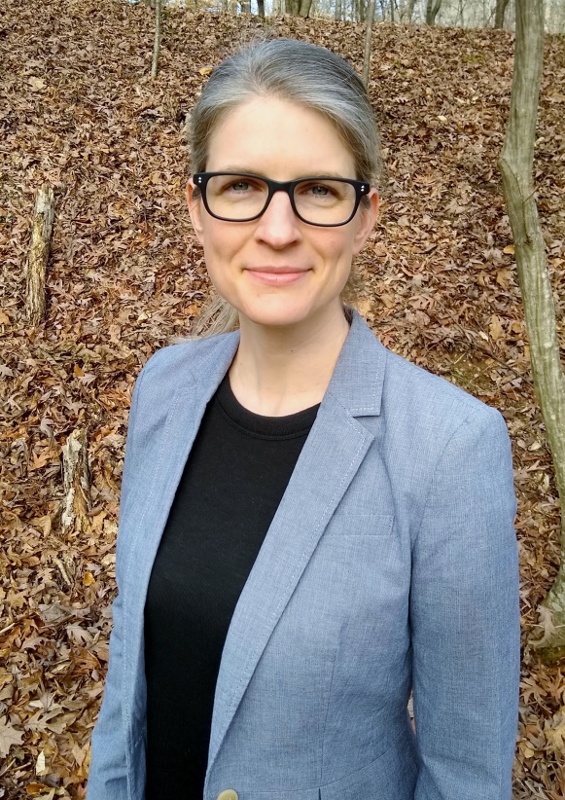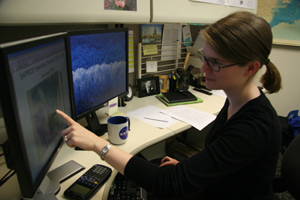Meet EPA Scientist Havala Pye, Ph.D.

EPA physical scientist Dr. Havala Pye researches air quality, specifically particles from both emissions and those that form in the atmosphere by interactions of gas-phase compounds. She uses the Community Multiscale Air Quality (CMAQ) model to better understand how these particles work and how they affect human health, climate change and visibility. Dr. Pye received the Presidential Early Career Award for Scientists and Engineers.
When not in the lab, Dr. Pye enjoys outdoor activities and being with her family.
How does your science matter?
Understanding how different sources and processes affect particles allows us to design better air quality management strategies that ultimately improve human health and our environment.
The general theme of my work is particles in the air. Particles can negatively affect human health, degrade visibility, and lead to climate change. Some of these particles are naturally occurring, such as sea salt from the ocean, some are directly emitted due to our own actions, and some are a complex mixture from different sources and influences.
One of the systems I study is monoterpenes, which are naturally-occurring compounds emitted by plants. They react in an environment influenced by man-made emissions from cars, factories, and other sources.
One of the primary tools I use in my work is the Community Multiscale Air Quality (CMAQ) model. This tool allows us to apply new science and see how well it fits with what we actually observe. Once scientific processes are included in a model, it provides us with a way to test future scenarios, Exit EPA Disclaimer and support informed actions and decisions.

What do you like most about your research?
I like discovering new information, gaining insight, and understanding processes. I like that I'm not just repeating what's already been done. Modeling can be a tool to test new hypotheses as well as capture important interactions that we already know exist.
When did you first know you wanted to be scientist?
I knew around the start of high school. I took a lot of math courses and, thanks to some great teachers, I was really motivated to learn more math and science. By the time I was in the tenth grade, I narrowed it down to chemical engineering.
Tell us about your background.
I was born and raised in Tallahassee, Florida, and completed my undergraduate degree in Chemical Engineering at the University of Florida (Go Gators!). I completed my doctorate at the California Institute of Technology, also in Chemical Engineering, where I studied particles in our current atmosphere and how they may be affected by future changes in climate and emissions.
If you were not a scientist, what would you be doing?
Scientists perform such a wide variety of tasks in our society that I think it would be very hard for me not to be a scientist or engineer. I suppose if I couldn't be a scientist, I might go into law and work on policy.
Any advice for students considering a career in science?
Science and engineering offer a lot of career opportunities. Take lots of math and science to prepare yourself and look for projects or classes with something that interests you. If you find someone working on something you might be interested in, ask them about their career path. I didn't even know that you could get a doctorate in chemical engineering with just computational studies until I was actually visiting graduate schools.
Editor's Note: The opinions expressed herein are those of the researcher alone. EPA does not endorse the opinions or positions expressed.
